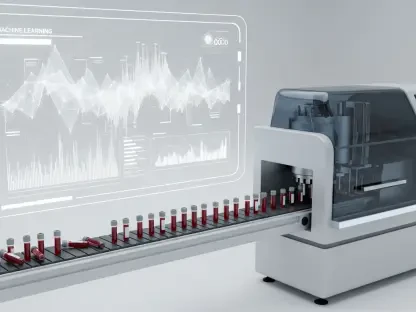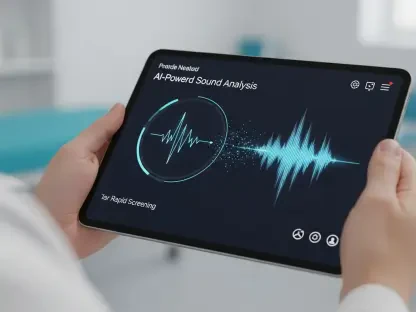Washington University School of Medicine in St. Louis (WashU Medicine) has been awarded a significant five-year, $10.8 million grant from the National Cancer Institute (NCI) of the National Institutes of Health (NIH). This funding renewal aims to advance the institution’s ongoing research in leukemia and other blood cancers. The grant supports WashU Medicine’s prestigious Specialized Program of Research Excellence (SPORE) in leukemia, a program dedicated to promoting translational research which bridges the gap between laboratory discoveries and clinical applications. Notably, WashU Medicine’s leukemia SPORE is one of only two such programs in the United States, highlighting its significant role in blood cancer research. The receipt of the grant places the institution at the forefront of cancer research, reaffirming its commitment to innovation and excellence in the field.
Siteman Cancer Center’s Elite Status
The Siteman Cancer Center, a collaboration between Barnes-Jewish Hospital and WashU Medicine, is part of an exclusive group of leading comprehensive cancer centers in the country to have at least three SPORE grants. Beyond the leukemia SPORE, WashU Medicine also boasts SPOREs for endometrial and pancreatic cancers. This accomplishment situates WashU Medicine in an elite category of cancer research institutions and underscores its extensive capabilities in cutting-edge cancer therapy. Dr. Daniel C. Link, the principal investigator for the leukemia SPORE and holder of the Alan A. and Edith L. Wolff Endowed Professorship of Medicine, expresses that Siteman Cancer Center’s resources grant patients access to state-of-the-art cancer therapies developed by world experts. The primary mission of Siteman Cancer Center remains to provide compassionate, cutting-edge care to cancer patients, with research projects funded by the leukemia SPORE being among the most innovative worldwide.
Dr. Link, who also serves as the director of the Division of Oncology in the Department of Medicine and deputy director of the Siteman Cancer Center, emphasizes the importance of continued funding in order to keep pushing the boundaries of what is possible in cancer treatment. He asserts that the resources and infrastructure provided by WashU Medicine and Siteman Cancer Center allow for the rapid translation of groundbreaking research into clinical practice. This ensures that patients in St. Louis, and potentially around the globe, can benefit from the latest advancements in cancer therapy. With a focus on both compassionate patient care and pioneering research, the Siteman Cancer Center stands as a beacon of hope in the fight against cancer.
Focus on Four Major Research Projects
Over the next five years, the leukemia SPORE will concentrate on four major research projects aimed at developing new therapies and understanding the intricacies of various blood cancers. These projects involve collaborations among top researchers at WashU Medicine and are designed to translate breakthrough scientific discoveries into tangible clinical advancements. The significance of these projects lies not only in their potential to revolutionize treatment options but also in their commitment to addressing some of the most challenging aspects of blood cancers. By leveraging the expertise of leading scientists and clinicians, these initiatives are poised to make substantial impacts in the field of hematologic oncology.
Project 1: Novel Cell-Based Immunotherapy for T-ALL
Project 1, led by Dr. John DiPersio, Dr. Armin Ghobadi, and Dr. Michael Rettig, focuses on the development of a novel cell-based immunotherapy for T-cell acute lymphoblastic leukemia (T-ALL). This team has engineered CAR-T cells derived from healthy donors to specifically target and eliminate T-ALL cells without harming normal tissues. Early findings from a first-in-human clinical trial using these innovative “off-the-shelf” allogeneic CAR-T cells in patients who have relapsed T-ALL are promising. These CAR-T cells could revolutionize treatment approaches by providing a ready-to-use therapy option for patients. The potential for these CAR-T cells to offer a more accessible and effective treatment for T-ALL could represent a paradigm shift in the management of this aggressive blood cancer.
The team’s research is not only focusing on immediate clinical applications, but also on understanding the underlying mechanisms that make this approach effective. By comprehensively studying how these CAR-T cells target and kill cancer cells, the researchers hope to refine and enhance the treatment. This project embodies the essence of translational research, where laboratory discoveries are meticulously translated into clinical solutions. If successful, the implications of this research could extend beyond T-ALL, offering insights into developing similar therapies for other types of blood cancers. The ability to provide a readily available, effective treatment option could significantly improve patient outcomes and reduce the overall burden of cancer care.
Project 2: Cellular Immunotherapy Using NK Cells
Project 2, spearheaded by Dr. Todd Fehniger and Dr. Amanda Cashen, entails the development of a new cellular immunotherapy using natural killer (NK) cells. These “memory-like” NK cells, discovered at WashU Medicine, hold potential for treating patients who experience relapses following bone marrow transplantation. Additionally, the researchers are working on engineering NK cells to enhance their ability to recognize and destroy acute myeloid leukemia (AML) cells and other cancer types. This project aims to establish NK cell-based therapies as viable and effective treatment options for blood cancer patients. The unique properties of these “memory-like” NK cells offer a promising avenue for creating durable and potent cancer treatments.
The development of NK cell-based therapies involves not only the basic science of understanding NK cell function but also the intricate process of bioengineering to enhance their therapeutic potential. Dr. Fehniger and Dr. Cashen’s work highlights the multidimensional nature of this research, combining immunology, cellular biology, and clinical expertise. By focusing on the adaptability and potency of NK cells, the project aims to create versatile treatment options that can be tailored to individual patient needs. This personalized approach to cancer therapy is a testament to the advancements being made in immunotherapy and the potential for significant improvements in patient care and survival rates.
Project 3: Targeting DNA Repair Mechanisms in MDS and AML
Project 3 is co-led by Dr. Matthew Walter and Dr. Tim Graubert from Massachusetts General Hospital. This project investigates myelodysplastic syndrome (MDS) and AML, focusing on whether blocking two proteins involved in DNA repair—ATR and PARP1—is safe and effective against these blood cancers. The research will explore why some cancers possess resistance to ATR inhibition and will seek combination therapies that can overcome this resistance. This study’s outcomes could reveal new therapeutic strategies for targeting DNA repair mechanisms in cancer cells. Understanding the complex relationships between DNA repair pathways and cancer cell survival is crucial for developing targeted therapies that can effectively eradicate resistant cancer cells.
By delving into the molecular intricacies of MDS and AML, Dr. Walter and Dr. Graubert’s work aims to uncover vulnerabilities in cancer cells that can be exploited for therapeutic gain. The focus on DNA repair mechanisms is particularly relevant as it addresses a fundamental aspect of cancer biology—the ability of cancer cells to survive and proliferate despite genomic instability. By targeting these pathways, the researchers hope to develop treatments that not only halt cancer progression but also prevent relapse. This project’s emphasis on overcoming drug resistance could lead to more durable and effective treatment options for patients with these challenging blood cancers.
Project 4: Addressing TP53 Mutations in Blood Cancers
Project 4, directed by Dr. Daniel C. Link and Dr. Geoffrey L. Uy, targets patients with AML or MDS whose cancers present mutations in the TP53 gene—the most frequent mutation found across all cancer types. The researchers have demonstrated that blood cancers with TP53 mutations are particularly susceptible to a combination of the drug decitabine and drugs that inhibit the ATR pathway. The project aims to conduct a first-in-human clinical trial to test this drug combination’s effectiveness in patients with TP53-mutated AML or MDS. This trial represents a critical step in translating laboratory findings into clinical practice, offering new hope for patients with these difficult-to-treat mutations.
The investigation into TP53 mutations is vital as these mutations are often associated with poor prognosis and resistance to conventional therapies. By identifying a therapeutic strategy that specifically targets these mutations, Dr. Link and Dr. Uy aim to provide a much-needed treatment option for patients who currently have limited choices. The combination of decitabine and ATR inhibitors has shown promise in preclinical studies, and the upcoming clinical trial will determine its potential efficacy in a real-world setting. Success in this trial could pave the way for similar approaches in other cancers harboring TP53 mutations, broadening the impact of this research.
Core Resources and Career-Enhancement Program
Over the next five years, the leukemia Specialized Programs of Research Excellence (SPORE) will focus on four key research projects aimed at developing innovative therapies and deepening the understanding of various blood cancers. These initiatives are characterized by collaborations between top researchers at WashU Medicine, targeting the translation of groundbreaking scientific findings into impactful clinical advancements. The importance of these projects extends beyond their potential to transform treatment landscapes; they are also dedicated to tackling some of the most formidable challenges in the realm of blood cancers. By harnessing the combined expertise of leading scientists and clinicians, these efforts are positioned to make significant contributions to the field of hematologic oncology. The SPORE projects embody a commitment to pushing the boundaries of what’s possible in cancer research and patient care, ultimately striving to enhance outcomes and provide new hope for those affected by blood cancers. Through these concerted efforts, a brighter future in leukemia treatment is on the horizon.









